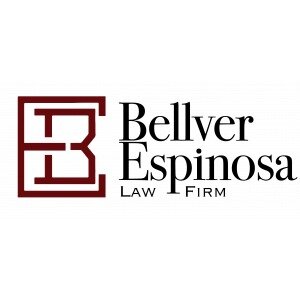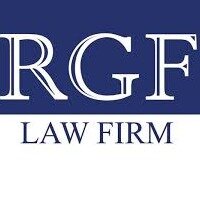Best Banking & Finance Lawyers in Puerto Rico
Share your needs with us, get contacted by law firms.
Free. Takes 2 min.
Or refine your search by selecting a city:
List of the best lawyers in Puerto Rico
About Banking & Finance Law in Puerto Rico
Banking and finance law in Puerto Rico is an integral part of the island's legal system, playing a crucial role in regulating financial transactions, banking operations, and financial institutions. The legal framework in Puerto Rico aligns with both its local governance as a U.S. territory and federal U.S. banking regulations. This dual oversight ensures that financial practices on the island are secure, fair, and compliant with international standards.
Why You May Need a Lawyer
Individuals and businesses may encounter various situations requiring legal assistance in banking and finance. Common scenarios include negotiating loan agreements, understanding regulatory compliance, addressing issues related to mergers and acquisitions, dealing with bankruptcy or insolvency, and navigating disputes with financial institutions. Lawyers specializing in this field help ensure that their clients' financial transactions comply with applicable laws, mitigating risks and safeguarding financial interests.
Local Laws Overview
Puerto Rico's financial landscape is governed by a combination of local and federal laws. Key local laws include the Puerto Rico Banking Law, which oversees the licensing and regulation of banks, and the General Corporations Law, which impacts financial transactions among business entities. Moreover, federal laws such as the Dodd-Frank Act and the Bank Secrecy Act have significant influence. Other relevant laws pertain to consumer protection, electronic banking, and anti-money laundering measures.
Frequently Asked Questions
What is the role of the Office of the Commissioner of Financial Institutions (OCFI) in Puerto Rico?
The OCFI is responsible for supervising and regulating financial institutions in Puerto Rico to ensure compliance with local and federal laws, promoting financial stability and protecting consumers.
Are U.S. banking laws applicable in Puerto Rico?
Yes, as a U.S. territory, federal banking laws are applicable in Puerto Rico alongside the island's local banking regulations.
How can a banking and finance lawyer assist with loan agreements?
A lawyer can help draft, review, and negotiate loan agreements to ensure they meet legal requirements and protect your interests, addressing potential risks and liabilities.
What should businesses know about mergers and acquisitions in Puerto Rico?
Mergers and acquisitions involve complex regulations, including antitrust laws and disclosure requirements. Legal guidance is essential to navigate these processes smoothly and comply with all regulations.
What legal protections exist for consumers in Puerto Rico?
Consumers in Puerto Rico are protected by laws against unfair banking practices and financial fraud, including protections similar to those provided by the Federal Trade Commission Act and the Consumer Financial Protection Bureau regulations.
How does Puerto Rico's bankruptcy law differ from the U.S. bankruptcy code?
Puerto Rico has its own bankruptcy laws for individuals and businesses, which are designed to align with key principles of the U.S. Bankruptcy Code, yet tailored to specific local financial conditions.
Can banking and finance lawyers in Puerto Rico handle cross-border transactions?
Yes, many lawyers in this field have expertise in handling cross-border transactions, ensuring compliance with both local and international regulations.
What steps are involved in setting up a financial institution in Puerto Rico?
Establishing a financial institution requires obtaining a license from the OCFI, compliance with local and federal regulations, and adherence to capital and operational requirements.
How do electronic banking laws impact financial transactions?
Electronic banking laws regulate transactions conducted via online platforms and electronic devices, focusing on consumer protection, security, and privacy.
What are the penalties for non-compliance with banking regulations in Puerto Rico?
Penalties can include fines, revocation of licenses, and legal action. Non-compliance risks reputational damage and operational disruptions.
Additional Resources
For more information, consider reaching out to the following resources:
- The Office of the Commissioner of Financial Institutions (OCFI)
- Puerto Rico Bankers Association
- Consumer Financial Protection Bureau (CFPB)
- U.S. Securities and Exchange Commission (SEC) for financial securities guidance
- Local law schools offering banking and finance legal clinics
Next Steps
If you need legal assistance in the field of banking and finance in Puerto Rico, it is advisable to consult with a lawyer who specializes in this area. Start by identifying specific legal issues you face, then look for attorneys with experience in relevant matters. You can find such professionals through local bar associations, legal directories, or law firm websites. Consider scheduling a consultation to discuss your situation and explore legal strategies tailored to your needs.
Lawzana helps you find the best lawyers and law firms in Puerto Rico through a curated and pre-screened list of qualified legal professionals. Our platform offers rankings and detailed profiles of attorneys and law firms, allowing you to compare based on practice areas, including Banking & Finance, experience, and client feedback.
Each profile includes a description of the firm's areas of practice, client reviews, team members and partners, year of establishment, spoken languages, office locations, contact information, social media presence, and any published articles or resources. Most firms on our platform speak English and are experienced in both local and international legal matters.
Get a quote from top-rated law firms in Puerto Rico — quickly, securely, and without unnecessary hassle.
Disclaimer:
The information provided on this page is for general informational purposes only and does not constitute legal advice. While we strive to ensure the accuracy and relevance of the content, legal information may change over time, and interpretations of the law can vary. You should always consult with a qualified legal professional for advice specific to your situation.
We disclaim all liability for actions taken or not taken based on the content of this page. If you believe any information is incorrect or outdated, please contact us, and we will review and update it where appropriate.
Browse banking & finance law firms by service in Puerto Rico
Puerto Rico Attorneys in related practice areas.
Browse banking & finance law firms by city in Puerto Rico
Refine your search by selecting a city.













